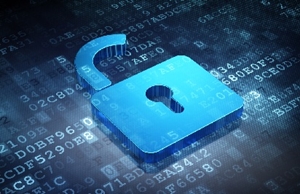
Tax season is here, and identity thieves are targeting the millions of Americans filling out their tax forms. One thing consumers ought to be wary of is online tax fraud. Identify theft as a result of criminals obtaining tax information illegally is on the rise. In 2011, only 276 people were charged with tax identity theft. But in 2012, that number climbed to 898, and then grew to 1,492 in 2013, according to the Christian Science Monitor.
However, here are a few more tips to protect your identity online:
Don't Reply to Emails from the IRS
If you think you've received an email from the IRS, take a closer look. It may be part of a scam.
"The IRS never sends unsolicited, tax-account related email and does not collect personal or financial information, PINs, or passwords via email," said Kelley C. Long, a member of the National CPA Financial Literacy Commission at the American Institute of Certified Public Accountants, to the Christian Science Monitor.
If you are really uncertain as to whether the email you have received is from the IRS or not, Google the title or call the IRS to ask if the email is real. More likely than not, it is part of a phishing scheme.
Be Careful with What You Put Through the Mail
According to independent Pennsylvania news outlet WFMZ, most fraud happens when information used to file tax returns - such as pay stubs - are intercepted through the mail. It is actually safer to e-file your taxes than to send them through the post office. You should be wary if there are any delays in receiving your tax refund. If you must send your taxes through the mail, then pay to have the documents sent through Certified Mail just to be safe.
"A lot of tax checks, Social Security numbers, come through the mail, sometimes these get stolen… People just steal checks right out of the mailbox," said Hem Vaidia of Smart Tax, according to WFMZ.
Secure Your Internet Connection
CS Monitor recommends that you do not submit your taxes electronically in a coffee shop using a public wireless connection, as they are not secure enough. Instead, according to Long, you should use your password protected internet at home, or better yet, directly connect your computer to your modem.
Shred Your Documents
Make sure to shred all your tax documents (unless you need to keep them for record keeping purposes). Also, be sure to use a confetti shredder, as documents that only go through a straight shred can be pieced together again.
If you are going to keep documents, make sure to hold them securely. Don't leave your files on your desk where anyone could see them. If you scan your files to your hard drive, then keep your hard drive secure or put the data onto a disk that you can keep in a safe.